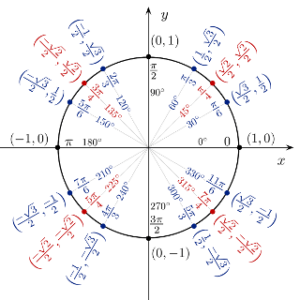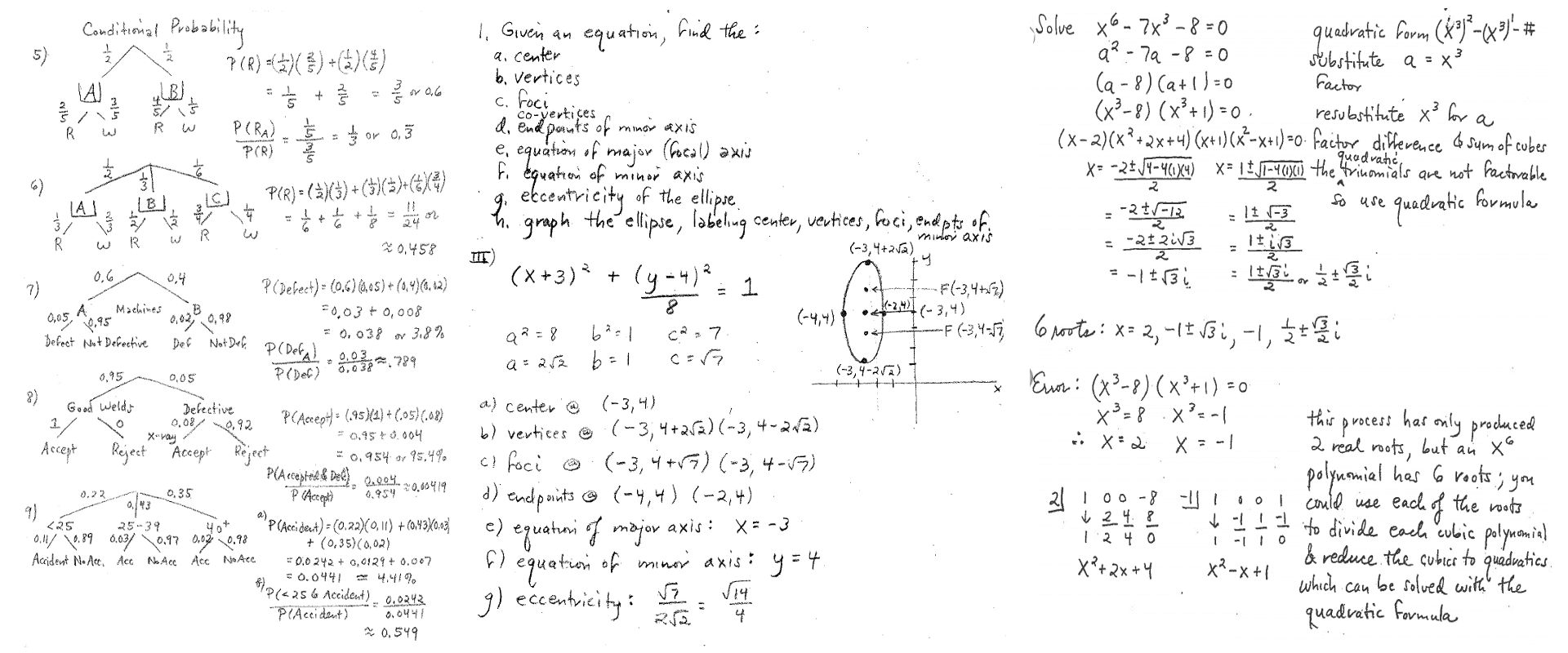ACT || SAT || GRE Prep Program
Private, One-to-One, Personalized, and Student Specific
Thoughtfully Designed to Prepare Our Students
For These College Entrance Exams
and Help Them Master
The Skill Needed to Score High
ACT || SAT || GRE Prep Program
It is a recognized fact that a significantly large population of otherwise high-achieving and talented students perform rather poorly in standardized tests like the ACT, SAT, GRE, GMAT, and TEAS etc.
And, there is a reason for it.
None of these ‘under-grade and grade’ college entrance exams are designed to measure the content knowledge of the students. Neither do they assess a student’s Analytic Ability or level of Intelligence—Nor do they measure what a student knows. Rather, these tests attempt’ to measure a prospective applicant’s ability to succeed in college!
Once we understand the scope and purpose of these standardized tests, it is easy to set a strategy and methodology to prepare for these tests.
Our Prep Program is thoughtfully designed to best prepare our students for optimal performance. Based on each individual student’s knowledge base and skill level, we tailor a personalized prep plan that enhances the necessary skills and promotes mental attitude essential to score higher on these standardized tests.
If the student has the basic skills and the base — and is committed to Learn and Work Hard, our ACT/SAT/GRE prep program will significantly improve a student’s test score.
ACT || SAT || GRE Prep Program Cost
⊛ All Four Areas of ACT/SAT Test — 32 Class Hours ⊛
Mathematics, English, Reading, and Science.
Plus Essay Writing Practice.
$1,920
⊛ Any Two Areas of The Test — 16 Class Hours ⊛
[Most Preferd Option — Math and Science.]
$1,080
⊛ Just The Math Prep — 12 Class Hours ⊛
$840
⊛ GRE Mathematics OR Quantitative Reasoning ⊛
12 Class Hours — $840
About The ACT and SAT
Under the hood, both of these two tests are very much alike. The SAT seems to have a different format than ACT. But, underneath, they are more similar than different — especially since after the changes in hte SAT in 2016. Of course, pre-2016 SAT had major differences from the ACT. But, the ‘New SAT’ is quite similar to ACT.
Prior to the 2016 changes in the SAT, the ACT was considered more a knowledge-based test than the SAT – now it is more or less an even field! Both tests require students to be able to read and analyze information very quickly to make the right choice.
Beside the superficial differences in the format structure and scoring system, both are quite identical, and the same preparation methodology and techniques are applied to prepare for both of these tests.
ACT/SAT/GRE Prep is about more than just increasing the test scores. Our prep programs helps students in building college readiness skills needed to do well in math, reading, and writing.
We provide academic support beyond the ACT/SAT/GRE, helping students master important study skills, develop strong work habits, and balance their test prep and school work.
Standardized Tests and The Admissions Departments
The skills required to do well in these assessment tests are quite different than those needed to earn “A”s in their regular school classes. You need to understand that all three of these tests—ACT, SAT, and GRE, are not not designed to test your knowledge. They do not assess what you know. Instead, they test your ability to read, interpret and reason.
And, with the perspective of colleges, the presence of these skills are indicators of ‘college readiness’. Those students who possess the skills of reading, analyzing, thinking, and reasoning are ready to succeed in college — that is the thinking at the ‘admissions departments’ all across the colleges/universities.
Our ACT/SAT/GRE prep program is designed to help students master these specific skills needed to score high on these tests and be ready for higher education.
Test Specific Information
The ACT
Specific Areas That The ACT Test Covers:
The ACT exam tests four skill areas: Mathematics, English, Reading, and Science. There is also an optional 30-minute section for writing. As some schools in your target list may require the writing component, it will be a good idea to be ready for it. The exam is approximately four hours in length, including breaks and the optional Writing section.
Here is the breakdown of the areas covered in the test — Please note, we are expecting more changes to come in both the ACT and SAT:
- English Test (45 minutes — 75 questions) — This section is comprised of 5 “passages”. The passages are selected, in general, to test your grammar, punctuation, sentence structure, and rhetorical skills.
- Math Test ( 60 minutes — 60 questions — Normally, there are; 14 Arithmetic Questions, 10 Elementary Algebra Questions, 9 Intermediate Algebra Questions, 9 Coordinate Geometry Questions, 14 Plane Geometry Questions, and 4 Trigonometry Questions. The format is multiple-choice.
- Reading Test (35 minutes — 40 questions) — In this test, there are four reading passages of about 750 words each — there is always one prose fiction passage, one social science passage, one humanities passage, and one natural science passage — and they are normally in the same order. After reading each passage, you have to answer 10 questions.
- Science Test (35 minutes — 40 questions) — It is not, in fact, a test of specific scientific knowledge — Usually there are six passages that present scientific data, often based on specific experiments. Also, there’s usually one passage in which two scientists state opposing views on the same issue. Each passage is followed by 5-7 questions.
- Optional (!) writing Test (30 minutes) — The ACT Writing Test consists of just one essay, and is always the last section of the test. You’ll be given a topic or an issue and expected to take a position on it, supporting your point of view with examples and evidence. This section, primarily, tests your ability to focus and articulate your point of view.
How The ACT is Scored:
You’ll earn a distinct and separate ACT score (1 to 36) on each test (English, Math, Reading and Science) and a composite ACT score, which is an average of these four tests. It is this composite score that is referred to as your ACT score. The composite score,logically, falls between 1 and 36, with national average being about 21.
You’ll receive subscores in English, Math and Reading that range between 1 and 18. These scores provide you with more detail about your performance, but they are not actually used by colleges or universities.
The ACT also includes, as said above, an (not so) optional essay, known as the Writing Test. If you take the writing test, you will receive a writing test subscore and a combined English/writing score.
Scaled scores and subscores are based on raw scores, which are calculated according to the number of correct, incorrect, and omitted questions.
Below is a general breakdown of the ACT scoring system (which may be changing soon):
- Students receive 1 raw score point for each correct answer.
- Students do not lose any raw score points for incorrect answers.
- Students neither gain nor lose points by omitting.
- Three scores are reported for the ACT English Test. They are:
- A total test score based on all 75 questions;
- A subscore in Usage/Mechanics based on 40 questions; and
- A subscore in Rhetorical Skills based on 35 questions.
- Four scores are reported for the ACT Mathematics Test. They are:
- A total test score based on all 60 questions;
- A subscore in Pre-Algebra/Elementary Algebra based on 24 questions;
- A subscore in Intermediate Algebra/Coordinate Geometry based on 18 questions; and a subscore in Plane Geometry/Trigonometry based on 18 questions.
- Three scores are reported for the ACT Reading Test. They are:
- A total test score based on all 40 questions;
- A subscore in Social Studies/Sciences reading skills (based on the 20 questions in the social studies and natural sciences sections); and
- A subscore in Arts/Literature reading skills (based on the 20 questions in the prose fiction and humanities sections of the test).
- One score is reported for the ACT Science Test, which is a total test score based on all 40 questions.
- Students who take the Writing Test receive two additional scores. They are:
- A Combined Score for the multiple-choice English Test and the Writing Test, and A subscore for the Writing Test.
- The ACT essay is scored on a scale of 2 to 12, with 12 being the best possible essay score. This score is actually the combination of two separate scores. Each essay will be scored by two readers and scored on a scale of 1 (low) to 6 (high). The Combined English/Writing score is then scaled 1 to 36. The English Test contributes 2/3 and the Writing Test contributes 1/3 toward the Combined English/Writing score.
Your ACT Score Report also contains other valuable information to help you better understand your score. This includes the ACT Score Conversion Scale, which distributes student scores along a bell curve. This means that most students receive scores that cluster around the center of the “bell” (a score of approximately 21). ACT scores correspond to certain percentiles. A percentile represents the percentage of students that took the test on a given day that performed below a given score.
Normally, ACT scores are available online after each national test date. ACT Writing scores are posted online as soon as they are processed, which is normally about 2 weeks after multiple-choice scores are available. ACT score reports are mailed out approximately 27 days after a test date. Scores are processed and added each week, usually each Wednesday and Friday. Normally, all scores are reported within 8 weeks after the test date.
The SAT
Specific Areas The SAT Test Covers:
- Reading (65 minutes — 52 multiple–choice questions) — Passages or pairs of passages (literature, historical documents, social sciences, and natural sciences).
- Math Test ( 80 minutes — 58 multiple–choice questions — Algebra I and II, Geometry, and some Trigonometry – 1 set of “extended-thinking” grid-in questions.
- Writing & Language (35 minutes — 44 multiple–choice questions) — Grammar, vocabulary in context, and editing skills.
- Science Test (35 minutes — 40 questions) — It is not, in fact, a test of specific scientific knowledge — Usually there are six passages that present scientific data, often based on specific experiments. Also, there’s usually one passage in which two scientists state opposing views on the same issue. Each passage is followed by 5-7 questions.
- Essay (Optional!) (50 minutes) — The SAT Writing Test consists of just one essay — Read a passage and explain how the author builds a persuasive argument. Like the ACT, this section, primarily, tests your ability to focus and articulate your point of view.
How The SAT is Scored—SAT Format Change in 2016:
- The SAT is now scored out of 1600 (the old SAT was out of 2400), and there are new subscores and cross-section scores to consider as you evaluate your performance — Your total score is your overall score and is a combination of your section scores. The highest composite score for the redesigned SAT is 800+800, or 1600. The average score is 1000.
- The Reading and Writing sections on the current SAT have been combined into a single section in the new SAT, with a maximum score of 800. Writing is now known as “Writing and Language.”
- The Math section is still scored out of 800.
- The essay is optional in the redesigned SAT (changed dramatically) and will not be factored into your overall SAT score. The essay scores will be shown separately on the report — Your essay, should you choose to write one, will be scored on three measures: Reading, Analysis and Writing (a good way to remember it: RAW). You will receive a score of 2 to 8 in each of these areas
- Your section scores are the individual scores for the two main sections of the SAT: reading/writing and math. Each of these sections is scored out of 800, and they are added together to get your overall score.
- Instead of 5 answer choices for each question, there will be only 4. This doesn’t necessarily make the test easier since the SAT will just remove the most unlikely answer.
The SAT Subject Tests:
SAT Subject tests are very important. These are timed exams that test for specific subject excellence. According to some university studies, the SAT subject scores are more predictive than SAT or ACT score.
The SAT Subject Tests are one-hour-long exams that give you the opportunity to demonstrate knowledge and showcase achievement in specific subjects. They provide a fair and reliable measure of your achievement in high school — information that can help enhance your college application portfolio.
SAT Subject Tests measure how well you know a particular subject area and your ability to apply that knowledge.
The GRE
The Purpose of GRE Test
The purpose of each GRE Test is to help graduate schools evaluate if you are suitable for their graduate program.
The GRE test, very much like its SAT and ACT siblings, is a broad assessment of your critical thinking, analytical writing, verbal reasoning, and quantitative reasoning skills. Some schools may also require you to take one or more GRE Subject Tests.
An Overview of the Test
The GRE test is divided into three main sections:
The first one is always the Analytical Writing section.
The other two sections are the Verbal and Quantitative sections:
These two sections may appear in any order and may also include “un-scored” sections with questions that the ETS uses for its research to evalaute their inclusion in future tests — your answers on these won’t count towards your score. (Note: Since you won’t know which questions are for ‘research’ purposes and which aren’t, you must treat every question of the test as if it counts.)
GRE General Test Content and Structure
The GRE General Test measures your verbal reasoning, quantitative reasoning, critical thinking and analytical writing skills — skills that have been developed over a long period of time and are not related to a specific field of study but are important for all.
Here’s a look at content covered in the three test sections — Verbal Reasoning, Quantitative Reasoning and Analytical Writing.
Analytical Writing
The Analytical Writing section measures your ability to:
- Articulate complex ideas clearly and effectively
- Support ideas with relevant reasons and examples
- Examine claims and accompanying evidence
- Sustain a well-focused, coherent discussion
- Control the elements of standard written English
Verbal Reasoning
The Verbal Reasoning section measures your ability to:
- Analyze and draw conclusions from discourse; reason from incomplete data; identify author’s assumptions and/or perspective; understand multiple levels of meaning, such as literal, figurative and author’s intent
- Select important points; distinguish major from minor or irrelevant points; summarize text; understand the structure of a text
- Understand the meanings of words, sentences and entire texts; understand relationships among words and among concepts
Quantitative Reasoning
The Quantitative Reasoning section measures your ability to:
- understand, interpret and analyze quantitative information
- solve problems using mathematical models
- apply basic skills and elementary concepts of arithmetic, algebra, geometry and data analysis
The Quantitative Reasoning section includes an on-screen calculator. If you are taking the paper-delivered test, a calculator will be provided at the test center.
The Analytical Writing section requires you to provide focused responses based on the tasks presented, so you can accurately demonstrate your skill in directly responding to a task.
Modified Versions of Verbal Reasoning & Quantitative Reasoning Questions:
The test you take may include questions that are modified versions of published questions or of questions you have already seen on the test. Some modifications are substantial; others are less apparent.
Even if a question appears to be similar to a question you have already seen, it may in fact be different and have a different answer. Pay careful attention to the wording of each question.
Remember: Your score in these tests—GRE, ACT, SAT, SAT Subject, connects you to scholarship opportunities!
Contact us
Email: admin@mathonia.com Phone: (773) 653-0750
ACT | SAT | GRE Tests
Test Taking Tips
The following Tips will be helpful in improving your score on these standardized tests:
- Gain some familiarity with the test. Know what to expect before the test date.
- Start preparing weeks in advance of the ACT test. Don’t study a lot each night. But do stretch the studying out over time. There’s nothing to cram for; it simply isn’t one of those types of tests. The test assesses your skills.
- You sure will agree that no expert musician or professional athlete ever acquired their skills by a single evening of intense preparation. It takes continuous, ongoing work-outs to build skills. Start preparing weeks in advance of the test.
- Have a plan. Execute the plan. Having a plan involves knowing what to do on each type of passage that is on the test.
- Use the process of elimination. Eliminate unreasonable choices and make informed guesses when needed.
- Read the graphs, tables, diagrams first. Skim the questions next. Then (if still not sure) read the passage. And, don’t forget to answer the questions.
- Practice reading graphs and charts. Practice interpreting experimental results. Practice delving into the conflicting views of fighting scientists.
- Practice reading fast. Make sure that you can do a passage in 5 minutes. Testing fast is a skill and one that many students have not yet mastered. And like any skill, testing fast must be practiced. Practice enough times to know what 5 minutes per passage feels like.
- And, do not leave any bubbles blank. There is no penalty for guessing in ACT — SAT is a different story, though – and, as the indications suggest, SAT may also be adopting the ACT’s “no penalty” policy in near future — make sure to check their official website.
More on These Test
Whether it is ACT, SAT, or GRE, none of these ‘under-grade and grade’ college entrance exams are designed to measure the content knowledge of the students. Neither do they assess a student’s Analytic Ability or level of Intelligence. Nor do they measure what a student knows. Rather, these tests attempt’ to measure a prospective applicant’s ability to succeed in college!
Nonetheless, since the competition to get into the better colleges and universities is on the rise – and, since a high score on the required standardized test carries a considerable weight in the selection process at colleges, it is very important for students to take these entrance Exams seriously.
To do well on the ACT/SAT/GRE test, students must be attuned to reading and analyzing information very quickly to make the right choice fast.
All these tests are designed to evaluate your ability to read, interpret and reason – And, from the perspective of colleges, the presence of these skills are the indicators of college readiness.
Your objective here is to develop the techniques and learn the ‘tricks’ to figure out the right answer quick.
Remember ! All these tests – the ACT, GRE, and SAT, are ‘Predictable’! Unlike grades and class rank at your regular school, it takes, relatively, little effort to improve your ACT/SAT score.
Out of all the other elements in your application package, your ACT, SAT, GRE score is the easiest to improve. With a bit of extra work, you can substantially improve your ACT score.
NOTE: All these ‘under-grade and grade’ college entrance exams like the ACT, SAT, GRE, GMAT, TEAS etc are not the content knowledge tests; they do NOT assess your Analytic Ability or your Intelligence, neither does they measure what you know. Rather, these tests are designed to measure your ability to succeed in college.
Further, to re-emphasize the reality of these tests: ACT/SAT/GRE do not measure your analytic ability or intelligence. It is, instead, designed to measure your knowledge of specific skills such as algebra, geometry, grammar, and reading comprehension. And, above all, it measures how good you are at taking these test!
The ACT/SAT tests your ability to read, interpret and reason. It requires students to be able to read and analyze information very quickly to make the right choice—And, from the perspective of colleges, the presence of these skills are the indicators of college readiness.
Your objective here is to develop the techniques and learn the ‘tricks’ to figure out the right answer quick.
Our Student Specific Prep Program is geared to best prepare our students for optimal performance. It is tuned to help them master the specific skills needed to do best at the test.
The Prep Program also prepares students for the college: providing readiness skills in math, reading, and writing that will help them for years to come.
We provide academic support beyond the ACT, helping students master important study skills, develop strong work habits, and balance their test prep and school work.
Our ACT/SAT/GRE Prep Method is interactive and exciting — Prep classes are individualized to the needs of each student.
All of our Personalized nad focused Prep Programs are designed with personal care and dedication to the success of our students — with a lot of Enthusiasm, Fun and Energy.
Math—Elegance in Simplicity
Mathematics — at its core — is comprised of simple, logical and straightforward concepts and rules that are natural for our human brains to grasp. These very simple concepts build on top of one another to give us math that seems very complicated and complex. But, the base of all the complex branches of math rests on the same simple rules and concepts that are so easy to grasp.
Once students fully understand the underlying concepts and natural rules that form the foundation of math, they start appreciating the inherent truth and beauty in math and love to play with it. Once working with math becomes fun for them the rest, of course, is easy.
The Pascal Triangle

Pascal Triangle is pure fun. It helps us find Binomial Coefficients, and the Probability of complementary events – the easy way.
The Binomial Expansion

The Algebra way – simple and elegant.
The Binomials A Geometric Representation

Even though we cannot visualize the higher degree dimensions, a geometric decomposition gives us some ‘visual’ to the Binomial Expansion.
The Unit Circle

An easy way to remember the Trigonometry ratios.
The Good Old Quadratic Formula

The Quadratic Formula seems confusing to many students, but once explained properly, they get very comfortable with it.
Math || A Human Construct
Mathematics - simply put - is our way of measuring and quantifying the “things” around us. It is a tool that helps us clarify and understand concepts, ideas and objects. It is convenient and, at the same time, very powerful.
When it comes to teaching Math to students, we have to explain to them the logic involved in each of its progressive steps. They should understand the reasoning and methodology involved in each step taken to solve a problem.
Once they come to understand the basic concepts and reasoning behind the solution methodology, they become comfortable with it and their natural curiosity guides them to play with math.
Sample Whiteboard Screenshots From Our OnLine/Real-Time Classes:

|| Whiteboard Screenshots from live online Pre-Calculus Classes.
